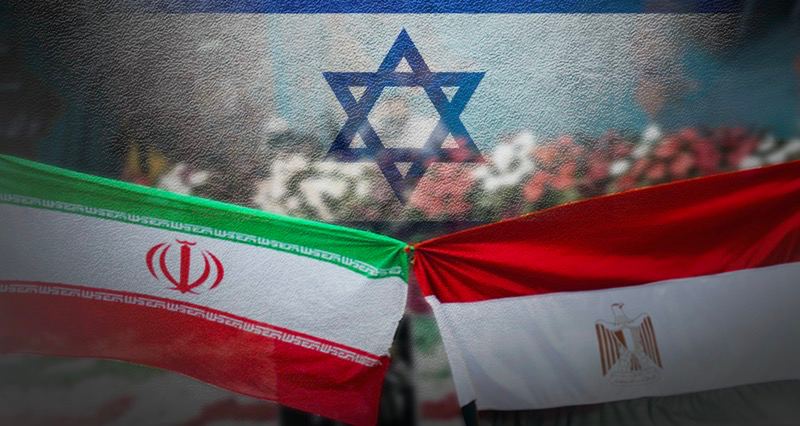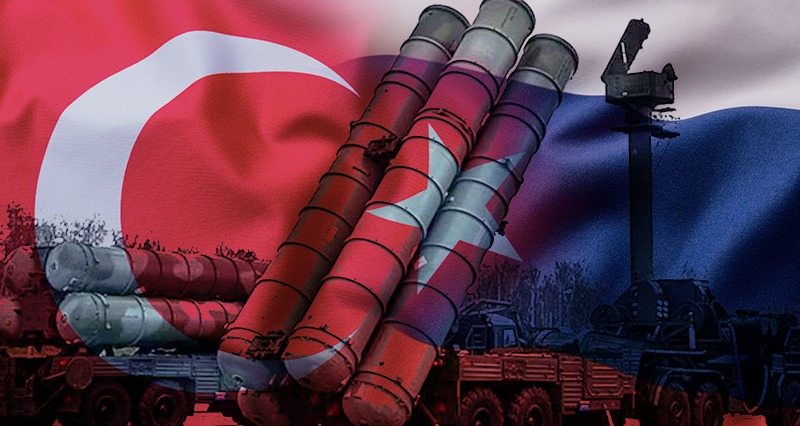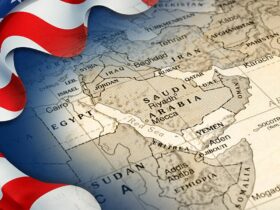Islam Farag
Reporting from Cairo, Egypt
Ending the Israeli war on the Gaza Strip, which has been going on for months, is no longer a bilateral issue that can be ended by settling the concerns of both parties, each vis-à-vis the other.
The war has turned into a complex and intertwined issue, with international and regional parties seeking to seize more gains that would not have been possible if that war had not broken out.
Moral fall
The United States is currently groaning at the arrogant voices that reject the war and demand ending its support for Tel Aviv politically, militarily, and financially. This was clearly demonstrated in the pro-Palestinian protests that spread like wildfire on various American universities.
Washington has fallen morally in all political and international forums during its defense of Israel. Tel Aviv faces a difficult dilemma, with its government unable to provide any victory that justifies stopping the war.
The United States, However, is seeking to exploit its negotiations with Saudi Arabia regarding a bilateral security agreement between the two parties, by including the normalization of relations between Riyadh and Tel Aviv as part of the deal in exchange for false promises without guarantees to revive the path of negotiations in order to establish a Palestinian state.
This represents a huge gain for the Hebrew state, even though the results of the recent war were supposed to kill all paths of normalization between Israel and the Gulf states.
Political opportunism
This represents one example of the state of American political opportunism, which ties together all the cards in the region in favor of serving its vision and project, which stems from supporting Israel without restrictions or conditions, or even within observance of the rules of international law.
This political opportunism clearly harms the balance of power in the region, and confuses the calculations of the old traditional powers, especially Egypt and Iran.
Some Western officials embrace a dreamy vision of a stable and prosperous Middle East if relations between Tel Aviv and its geographical surroundings are normalized. They believe that this can achieve the desired result even without finding a solution to the Palestinian issue.
Clearly and frankly, any circumvention or circumvention of the legitimate rights of the Palestinians to an independent and sovereign state on their land, which was decided for them in accordance with international resolutions and legitimacy, is like a mine that will re-explode the region.
Saudi Arabia is an independent and sovereign state and has the right to accept or reject whatever it wants. But as a country with great political and economic weight and a high standing in the Islamic world, it is aware of the great responsibility that it undertakes or must assume in protecting legitimate Palestinian rights.
Iranian concerns
However, even if these calculations are correct and true, any Saudi decision to normalize relations with Israel cannot be taken in isolation from taking the Iranian position on this process into account.
According to many observers, the rapprochement between Saudi Arabia and Israel raises serious concerns in Tehran.
Iranian officials believe that such a path will greatly reduce Iran’s geopolitical weight in the region, to the benefit of Israel.
Tehran believes that any Saudi-Israeli rapprochement could cause it to lose its relationship with Riyadh, even if this is not the desire of the Saudi government.
At the same time, Iran does not want to see other countries in the region enjoying a high level of armament alongside Israel. Iran objects to any Saudi-American security agreement based on the Kingdom’s normalization with the Hebrew state. But what worries Tehran is the extent of the armament that the Kingdom can obtain from the agreement.
Although the normalization concluded by the UAE and Bahrain with Israel in 2020 was annoying to Iran, the level of discomfort this time is incomparable if the Israeli normalization train arrives at Riyadh station.
Saudi conditions
Therefore, according to an informed source, the risks that Saudi Arabia must be prepared for as a result of this normalization can only be prevented through guarantees that the normalization agreement does not include anything that might threaten the security of other countries in the region, whether Iran or others.
“In any case, any normalization that is not conditional on a clear and specific path that guarantees the establishment of an independent Palestinian state will dissipate much of the Kingdom’s influence and standing in its Arab and Islamic surroundings,” the source said.
According to this, the Iranian position in support of the Palestinian resistance, regardless of the assessment of its moral nobility, is established within an entire Iranian strategic system of agents who represent its cards of influence that can be manipulated to maneuver the West and its agent in the region, which is Israel.
Therefore, whether we like it or not, Iran has become one of the most important parties with which an agreement can be reached to fulfill any settlement aimed at calming the situation in the Middle East, especially on the conflict front with Israel or securing navigation in the Red Sea, which represents a vital issue for the West and the Gulf in general, given oil and gas tankers that pass through it, and for Egypt in particular as it is the gateway to the Suez Canal, which represents an important economic artery at a time when it is experiencing one of its most severe economic crises.
Humanitarian catastrophe
The Palestinian issue is a matter of national security for Egypt, no matter how its ruling regimes change. With the fierce war that Israel has been waging on the Gaza Strip for 7 months, Cairo feels political and security pressures that cannot be ignored.
Therefore, it is making strenuous efforts to mediate between Israel and the Hamas movement, to save what can be saved of the life chances of the Palestinian people, especially with Israel launching a ground attack on Rafah under the pretext of eliminating the Palestinian resistance movement in the Gaza Strip.
During the presence of the Hamas negotiator delegation in Cairo, it was not surprising that Egyptian Foreign Minister Sameh Shoukry took advantage of his opportunity to participate in the Islamic Conference summit in Banjul, to meet with his Iranian counterpart, Hussein Amir Abdollahian.
While the region is on the verge of a humanitarian and security catastrophe with Israel launching its attack on Rafah, a circumstance that requires the dedication of all the efforts of the active and major countries in the region to prevent it, relations between Tehran and Cairo are not at their best, and there are still outstanding issues that hinder the normalization of relations between the two countries.
Delicate circumstances
The delicate circumstances that the region is going through would not have allowed the opportunity of such a meeting between the two ministers to be missed, regardless of the level of the relationship between the two countries.
The last months of the war witnessed an exchange of calculated attacks between Israel and Iran. Therefore, there is nothing to prevent the attack on Rafah from turning into a security flurry that leads any of the players in the region to misjudge the situation, causing things to spiral into disastrous consequences, especially for Egypt.
The Israeli attack may result in the Palestinians rushing under bombardment to the Egyptian border, which represents a real dilemma for the Cairo government that it is trying by all means to avoid.
Coordination with Tehran is a necessity for the Egyptian government, as Cairo realizes that Tehran has many cards to influence Hamas, whatever path it takes to resolve the Palestinian issue.
Gaza will not be governed after the end of the war without Hamas having a say in this process. Any future negotiations to resume peace talks leading to a Palestinian state will not take place without the resistance being a participating party. Any truce from the fighting will not be approved without the approval of the Islamic Movement.
Cairo cannot allow all of these paths to move forward without ensuring that their details do not at least conflict with its national interests.
While recognizing that any path cannot succeed without Egypt’s acceptance of all the details, this clearly says that Egypt will remain forced to communicate with all regional actors in the Palestinian issue, to ensure that it remains the balanced force that prevents any party from tampering with the rights of the Palestinian people or the necessities of its national security.
In my opinion, Egyptian-Iranian coordination would restrain Israel from the illusion that it is at a historical moment in which it can win everything.

















Leave a Reply